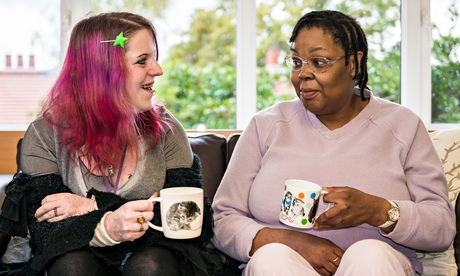
The health and social care sector has undergone radical change over the five decades that Turning Point has been providing services. You could look at the last 50 years as moving through three stages: caring for adults with health and social care needs in large scale institutions; then moving them out into community care; and now providing people with individual budgets. None of these stages has been accompanied by significantly more money. What we need to avoid at all costs is a situation where choice in health and social care is dependent on what you can afford, rather than on what you need – a need made all the more pressing by the rising eligibility threshold in adult social care as councils are forced to cut budgets.
Society’s negative attitude to mental health has also significantly changed. But to tackle its prevalence, our education system, employers and the police need to be geared towards an understanding of wellbeing and mental health.
Looking back to 1990, the Community Care Act created a whole range of choice and possibilities for those who needed care. Asylums and long-stay hospitals were closed down, both the good and the bad. I say that because, for some, they were an oasis of calm, but for many more, they were outdated places where choice was denied. I refer to them now because I feel that this idea of sanctuary, in its most enlightened form – not as long-stay hospitals – is essential to any successful vision of health and social care. Crisis houses and places of sanctuary do exist, but there are not enough. Personally, I wouldn’t build a town or city without having somewhere people could go for respite. These services would be provided alongside support in the community as Improving Access to Psychological Therapies, the NHS initiative that provides psychology services in primary care, demonstrates.
My hope for the next 50 years is that we have a health and social care system that looks at health and wellbeing holistically. One which provides a seamless service that supports an individual’s (and or community’s) health needs; mental, emotional or physical. People do not think in terms of mental and physical health. We only ask, “Am I well?”
We are seeing important changes in primary care, with services such as the Earl’s Court health and wellbeing centre in west London providing wellbeing coaches, centre champions, peer mentoring and community activities for patients in contrast to a traditional GP practice. However, innovative services struggle because funding doesn’t yet match patients’ expectations. We need to keep pushing for changes that mean excellent care and support for all.

